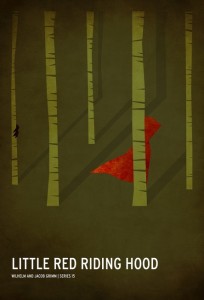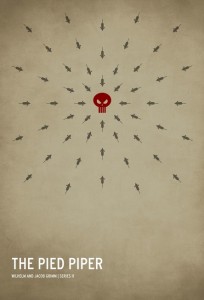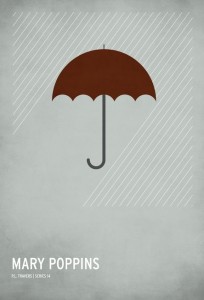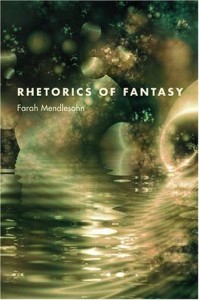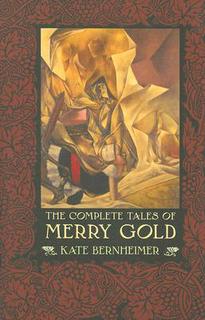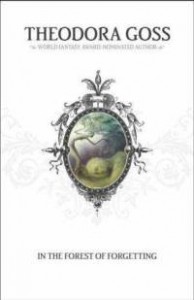Here are some shiny things that caught my eye recently:
 ♦ Where can I get a plush Sleipnir? Alas, it’s one of a kind, made by Plankton Art Company for a friend’s baby. Found via the incomparable Super Punch (man, I love that blog).
♦ Where can I get a plush Sleipnir? Alas, it’s one of a kind, made by Plankton Art Company for a friend’s baby. Found via the incomparable Super Punch (man, I love that blog).
♦ If you like speculative poetry (“speculative” in the sense of fantasy and science fiction), check out Versification, the new website devoted to reviewing speculative poetry. The reviews cover both well known magazines and websites (Goblin Fruit, Mythic Delirium, Strange Horizons) but also some sources for speculative poetry I hadn’t heard of before (like Dead, Mad, or a Poet—what a great title!–and Not One Of Us), which I certainly appreciate.
 ♦ Twin Peaks is one of my favorite television shows (just thinking about the scene where Maddy has a vision of BOB crawling over the couch toward her still gives me the shivers, twenty-one years on). Lately, I’ve also been interested in noir, particularly horror or fantasy noir, so I enjoyed Mike Perschon’s reflection about TP as noir in Twin Peaks: White Knight in a Dark Wood over at Tor.com. Really makes me want to watch the entire series again.
♦ Twin Peaks is one of my favorite television shows (just thinking about the scene where Maddy has a vision of BOB crawling over the couch toward her still gives me the shivers, twenty-one years on). Lately, I’ve also been interested in noir, particularly horror or fantasy noir, so I enjoyed Mike Perschon’s reflection about TP as noir in Twin Peaks: White Knight in a Dark Wood over at Tor.com. Really makes me want to watch the entire series again.
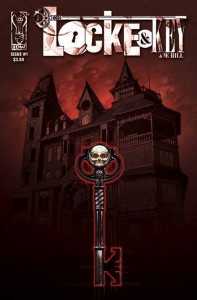 ♦ I am terribly in love with Joe Hill & Gabriel Rodriguez’s Locke & Key comic book series and have been reading the collected volumes with devotion. If you haven’t been reading it, shame on you and go out right now to pick up the first volume! Hopes were high that the comic book series would transition into a television series, but those hopes seem to have been crushed, alas. io9 has the trailer for the beautiful horror TV series that never was (and beautiful it is).
♦ I am terribly in love with Joe Hill & Gabriel Rodriguez’s Locke & Key comic book series and have been reading the collected volumes with devotion. If you haven’t been reading it, shame on you and go out right now to pick up the first volume! Hopes were high that the comic book series would transition into a television series, but those hopes seem to have been crushed, alas. io9 has the trailer for the beautiful horror TV series that never was (and beautiful it is).
♦ Everyone who’s met me knows I am crazy about organization. I like being organized, but I also like reading about it and looking at pictures of it (I know, I know). I came across a great blog post by Martha Stewart Living‘s decorating editor, Kevin Sharkey, who shares several tips about creating An Organized Home Office.
♦ I’ve seen Christian Jackson’s minimalist fairy-tale posters at both Super Punch and SurLaLune Fairy Tales, two of my favorite blogs, and I have a feeling I’m going to break down and buy some yet. Here are the four that caught my eye the most, though all the posters are charming:
♦ Monica Byrne has written a lovely post about Why Fantasy Matters. I probably fall more into the Ursula K. Le Guin school of thinking about why fantasy matters, which Byrne describes, but I did read “Why Are Americans Afraid of Dragons?” at a formative age. However, I think Byrne’s reason for why fantasy matters is also important.
♦ Sad to hear about Ann VanderMeer’s leaving Weird Tales. I liked her editorial choices and the direction of the magazine (and hoped one day to be published there). I’d definitely support any new magazine she might start.
♦ Speaking of Weird Tales, those of you who write and/or read short fiction might find of interest io9’s recap of a Worldcon panel on How Technology Has Transformed Short Science Fiction and Fantasy.
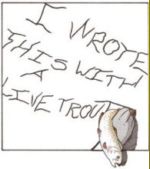 ♦ I’m a big fan of Kevin Delger’s The Daily Superpower. Here’s an example that made me laugh, the “Ability to Write with Anything.” So long and thanks for all the fish!
♦ I’m a big fan of Kevin Delger’s The Daily Superpower. Here’s an example that made me laugh, the “Ability to Write with Anything.” So long and thanks for all the fish!

